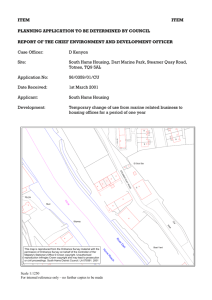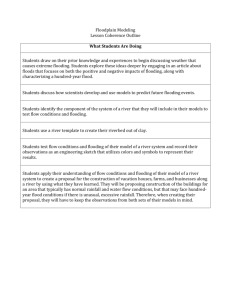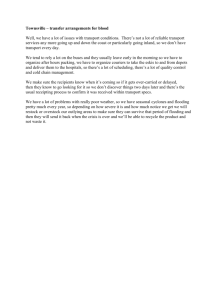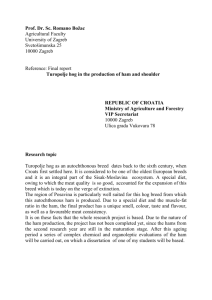Appendix - South Hams District Council
advertisement
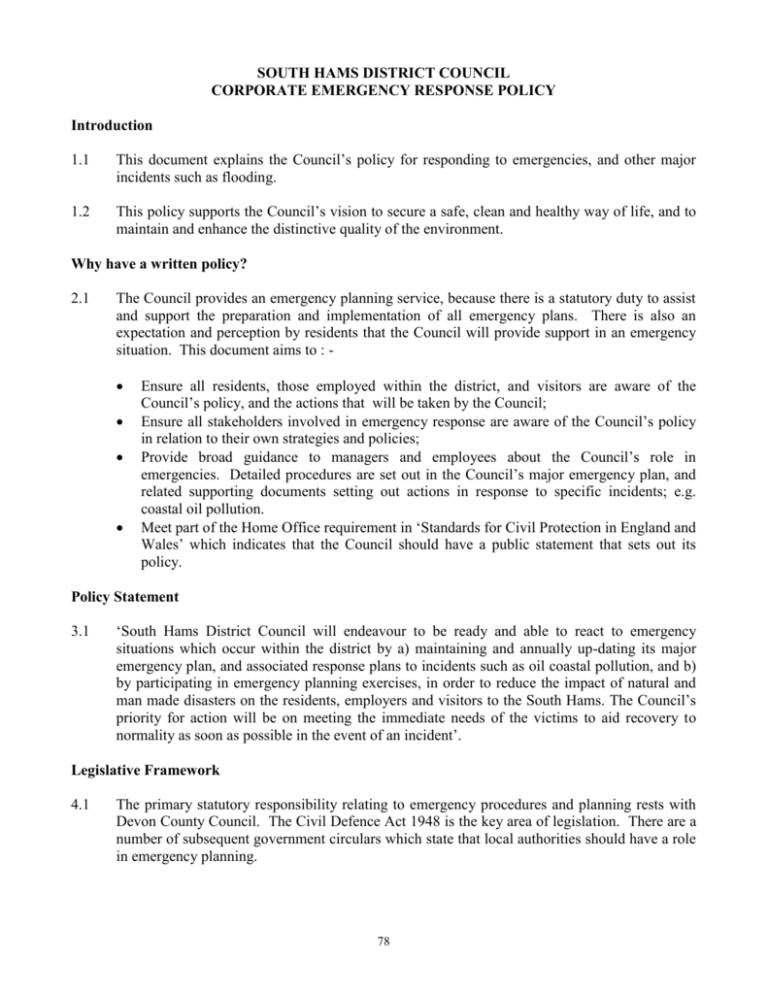
SOUTH HAMS DISTRICT COUNCIL CORPORATE EMERGENCY RESPONSE POLICY Introduction 1.1 This document explains the Council’s policy for responding to emergencies, and other major incidents such as flooding. 1.2 This policy supports the Council’s vision to secure a safe, clean and healthy way of life, and to maintain and enhance the distinctive quality of the environment. Why have a written policy? 2.1 The Council provides an emergency planning service, because there is a statutory duty to assist and support the preparation and implementation of all emergency plans. There is also an expectation and perception by residents that the Council will provide support in an emergency situation. This document aims to : Ensure all residents, those employed within the district, and visitors are aware of the Council’s policy, and the actions that will be taken by the Council; Ensure all stakeholders involved in emergency response are aware of the Council’s policy in relation to their own strategies and policies; Provide broad guidance to managers and employees about the Council’s role in emergencies. Detailed procedures are set out in the Council’s major emergency plan, and related supporting documents setting out actions in response to specific incidents; e.g. coastal oil pollution. Meet part of the Home Office requirement in ‘Standards for Civil Protection in England and Wales’ which indicates that the Council should have a public statement that sets out its policy. Policy Statement 3.1 ‘South Hams District Council will endeavour to be ready and able to react to emergency situations which occur within the district by a) maintaining and annually up-dating its major emergency plan, and associated response plans to incidents such as oil coastal pollution, and b) by participating in emergency planning exercises, in order to reduce the impact of natural and man made disasters on the residents, employers and visitors to the South Hams. The Council’s priority for action will be on meeting the immediate needs of the victims to aid recovery to normality as soon as possible in the event of an incident’. Legislative Framework 4.1 The primary statutory responsibility relating to emergency procedures and planning rests with Devon County Council. The Civil Defence Act 1948 is the key area of legislation. There are a number of subsequent government circulars which state that local authorities should have a role in emergency planning. 78 Strategy 5.1 The primary responsibility for emergency planning is with Devon County Council. Therefore it is important for this Council to balance providing a supportive service while limiting the Council’s liability for unrecoverable costs. This policy provides the strategic framework for future reviews of the following emergency response plans: Devon County Council Major Emergency Plan; South Hams District Council Major Emergency Plan; South Hams Coastal Pollution Plan; Tamar Estuaries Contingency Plan; Calor Gas, Lee Mill, COMAH off-site plan. Definition of Major Emergency 6.1 An emergency is an incident that requires the implementation of special arrangements by one or all of the emergency services, for: The rescue, initial treatment and transport of a large number of casualties. The involvement either directly or indirectly of large numbers of people. The handling of a large number of enquiries likely to be generated, both from the public and the news media. The mobilisation and organisation of the emergency services and supporting organisations, e.g. local authority, major hospitals and emergency medical teams, to cater for the threat of death, serious injury or homelessness to a large number of people. The need for the large scale combined resources of two or more of the emergency services. South Hams District Council’s Major Emergency Plan 7.1 The South Hams Major Emergency Plan: defines the District Council’s responsibilities. co-ordinates the response of the District Council, together with other appropriate organisations. specifies arrangements for the call-out of local authority services. establishes lines of communication for providing assistance to the emergency and utility services. provides guidance for mobilising resources needed to deal with a major emergency. prevents duplication of effort between agencies. Inter Agency Co-operation in a Major Emergency 8.1 In the early stages of a major emergency, the Council will operate in support of the emergency services. The Council will also help other councils to recover the situation through cooperation and mutual support. 79 8.2 8.3 8.4 A series of principles governing the way Devon local authorities plan for, and respond to a major emergency have been agreed by the County and District Chief Executives. These principles are contained in the South Hams District Major Emergency Plan. In the event of a major emergency a strategic Gold Control, may be set up at Police Headquarters, Middlemoor, Exeter. In this event, a member of the Corporate Management Team or nominated senior District Council officer, will attend the Gold Control as the local authority Gold Control Liaison Officer. In every major emergency, a police Incident Control Post (Silver Control) will be set up near the scene of the emergency which will be attended by a senior District Council officer acting as the Local Authority Liaison Officer (LALO). In appropriate circumstances an Emergency Management Team (EMT) will be set up. EMT will be a management cell with supporting staff convened to manage and process information concerning the major emergency. They will control and co-ordinate the District Council’s actions in support of the emergency services and subsequently in recovery operations. The EMT will be convened by the lead officer, normally the Chief Executive and will include the Chief Environment and Development Officer, the Chief Finance Officer and the Solicitor to the Council. Other officers may be co-opted as necessary. When the District Council is called upon to respond to a major emergency, consideration will be given to opening the Emergency Co-ordinating Centre (ECC) in the Leaders office at Follaton House, Totnes. This decision will be made by the Chief Executive or in their absence by a nominated member of the Corporate Management Team or senior officer. The ECC will enable Council services to be appropriately co-ordinated, particularly in the case of an Oil Pollution incident, which will be lead by the District Council. The Council’s Response to Emergency Flooding Incidents 9.1 Although there is no statutory duty for the Council to provide relief from flooding, there is an expectation by the public that the Council will help to alleviate the worst effects of flooding wherever possible. The Council receives weather warnings through the Met. Office and Flood Alerts are received from the Environment Agency. Generally, adequate warning is given for flood alerts and the well-known areas for flooding will be targeted for action before flooding actually occurs. The current practice is that sandbags will be made available free of charge to householders. Where an area is in danger of flooding, sandbags will be delivered by the Council to a suitable communal collection point and householders will need to make their own protection arrangements in relation to their property. In the cases of elderly, disabled and vulnerable groups of people, sandbags will be delivered to their homes, provided the Council is made aware of their particular circumstances in advance. In most circumstances, householders will also be able to come to the depots to collect sandbags if they have suitable transport. In addition, the Council will provide skips close to the incident to enable householders to dispose of ruined carpets, furniture etc as quickly as possible. However, the Council is not able to become involved in detailed aspects of property protection and recovery such as drying out carpets or supplying gas heaters and/or dehumidifiers because of the potential insurance implications. Monitoring 10.1 Following an incident appropriate Council staff will hold a de-brief to consider important lessons from the response, and identify amendments to the relevant emergency plan. 80 A copy of this policy is posted on the South Hams District Council Web Site. Further publicity relating to the Council’s actions will be given through the publication of leaflets relating to specific issues and via articles in South Hams Matters. June 2002 81


